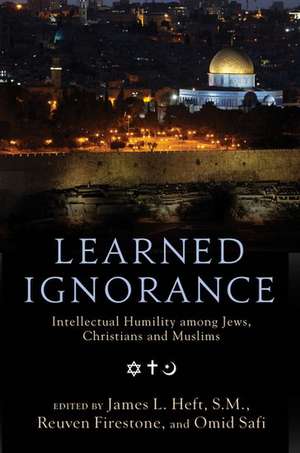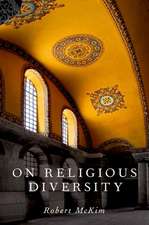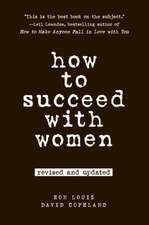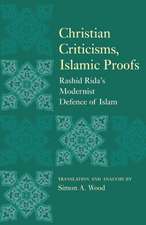Learned Ignorance: Intellectual Humility among Jews, Christians and Muslims
Editat de James L. Heft, Reuven Firestone, Omid Safien Limba Engleză Hardback – 18 aug 2011
| Toate formatele și edițiile | Preț | Express |
|---|---|---|
| Paperback (1) | 304.02 lei 31-37 zile | |
| Oxford University Press – 4 aug 2011 | 304.02 lei 31-37 zile | |
| Hardback (1) | 403.63 lei 31-37 zile | |
| Oxford University Press – 18 aug 2011 | 403.63 lei 31-37 zile |
Preț: 403.63 lei
Preț vechi: 554.56 lei
-27% Nou
Puncte Express: 605
Preț estimativ în valută:
77.23€ • 80.86$ • 63.91£
77.23€ • 80.86$ • 63.91£
Carte tipărită la comandă
Livrare economică 25-31 martie
Preluare comenzi: 021 569.72.76
Specificații
ISBN-13: 9780199769308
ISBN-10: 0199769303
Pagini: 360
Dimensiuni: 236 x 163 x 28 mm
Greutate: 0.64 kg
Editura: Oxford University Press
Colecția OUP USA
Locul publicării:New York, United States
ISBN-10: 0199769303
Pagini: 360
Dimensiuni: 236 x 163 x 28 mm
Greutate: 0.64 kg
Editura: Oxford University Press
Colecția OUP USA
Locul publicării:New York, United States
Recenzii
This explicitly theological and exceptionally engaging collection of scholarly essays represents trilateral dialogue in its most refined yet attractively challenging form. Here Jewish, Christian and Muslim authors address core mysteries of their faiths that bear consequentially on the whole 'Abrahamic' monotheistic tradition. Their compelling unity of purpose is to unravel, by thinking pluralistically to the limits of knowledge beyond specific questions, that condition of wonderment and intellectual humility before ineffable truth.
The book is an outcome...that brought together an international group of 16 Jewish, Catholic an Muslim scholoars to carry on an important theological exploration of the theme of learned ignornance
Overall, this is a very valuable addition to the growing body of interreligious literature.
The book is an outcome...that brought together an international group of 16 Jewish, Catholic an Muslim scholoars to carry on an important theological exploration of the theme of learned ignornance
Overall, this is a very valuable addition to the growing body of interreligious literature.
Notă biografică
James L. Heft is a member of the Society of Mary (Marianists). In 2006, he became the Alton Brooks Profess of Religion and the President of the Institute for Advanced Catholic Studies at the University of Southern California. Along with three other leaders in Catholic higher education, he founded in 1996 Catholic Education: A Journal of Inquiry and Practice. He has published and edited twelve books and written over 160 articles and book chapters. Reuven Firestone is professor of medieval Judaism and Islam at Hebrew Union College in Los Angeles and founding co-director of the Center for Muslim-Jewish Engagement. His published works include Jihad: The Origin of Holy War in Islam, Children of Abraham: An Introduction to Judaism for Muslims, and Jews, Christians, Muslims in Dialogue: A Practical Handbook.Omid Safi is the Chair for the Study of Islam at the American Academy of Religion. A leading Muslim public intellectual in America, he is a professor ofReligious Studies at University of North Carolina. He is the author of The Politics of Knowledge Premodern Islam and Memories of Muhammad: Why the Prophet Matters.














